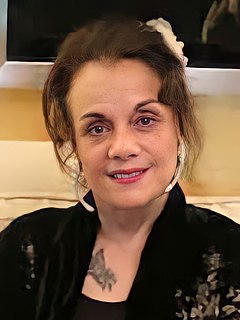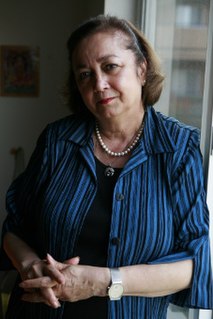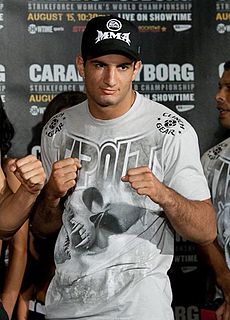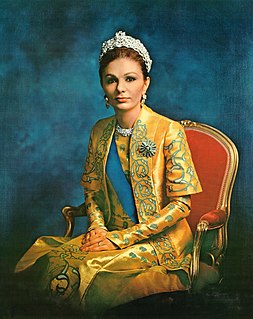A Quote by Said Sayrafiezadeh
I was born in Brooklyn and raised in Pittsburgh. I've never been to Iran, I don't speak the language, and, probably most important of all, my Iranian father left home when I was nine months old. That's the extent of my connection to Iran.
Related Quotes
I was born in Iran, left at a very young age-less than a year old-and grew up and was educated in the West. I grew up thinking of myself as an American but also, because of my parents and the Iranian culture that was in our home, as an Iranian. So if there's any such thing as dual loyalty, then I have it-at least culturally.
I have to expend an awful lot of energy actively undoing the impact of my name. Understandably, people assume that I have at least some connection to Iran. The truth is that I don't. I have very little knowledge about the culture, the language, the history. I've never been to Iran. I've never even been inside a mosque.
Iran is an ancient land, home to a proud culture with a rich heritage of learning and progress. The future of Iran will be decided by the people of Iran. Right now, the Iranian people are struggling with difficult questions about how to build a modern 21st century society that is at once Muslim, prosperous, and free. There is a long history of friendship between the American people and the people of Iran. As Iran's people move towards a future defined by greater freedom, greater tolerance, they will have no better friend than the United States of America.
I think what is happening is that Houthis and the Iranians have common interests, but there's very little good journalism that's been done to uncover the true extent of that relationship between the Houthis and Iran. But, obviously, I do think that they - they benefit from the rhetoric of the Houthis on the ground. But, also, they do have a connection, but not to the extent that is being covered in the media at the moment by describing them as a Shia militia backed by Iran. I think that's an overstatement.
My parents left Iran in 1979 and moved to France and then moved to the U.S. My brother was born in France and I was born in New York. I think my parents left France because they felt their kids would never be accepted by French culture. Here they thought we could feel American - that we could feel safe in that way - which was important to them, given what their experiences were in Iran. They used to joke about how I could be president because I was the only one born in America.
Iran's Supreme Court has issued a fatwa against the development of nuclear weapons. President [Hassan] Rouhani has indicated Iran will never develop nuclear weapons. I've made clear that we respect the right of the Iranian people to access peaceful nuclear energy in the context of Iran meeting its obligations.
I was born in Iran, my parents are Armenian. We fled from Iran to the Netherlands when I was eight years old. We had a lot of family and friends in Iran, so it was hard to leave, especially for my parents. But we managed to settle well in the Netherlands, after a year in refugee camps. But I understood it was a process.
In the United States, Iran is nothing but a whipping-boy. Few Americans have any real use for Iran. Most of us, what we know and remember about Iran are things like the hostage crisis in 1980, or they think about the Iranian attacks in Lebanon, or on the Khobar Towers. So you don't get a whole lot of political mileage in the United States by going out and advocating better relations with the Iranians.




































